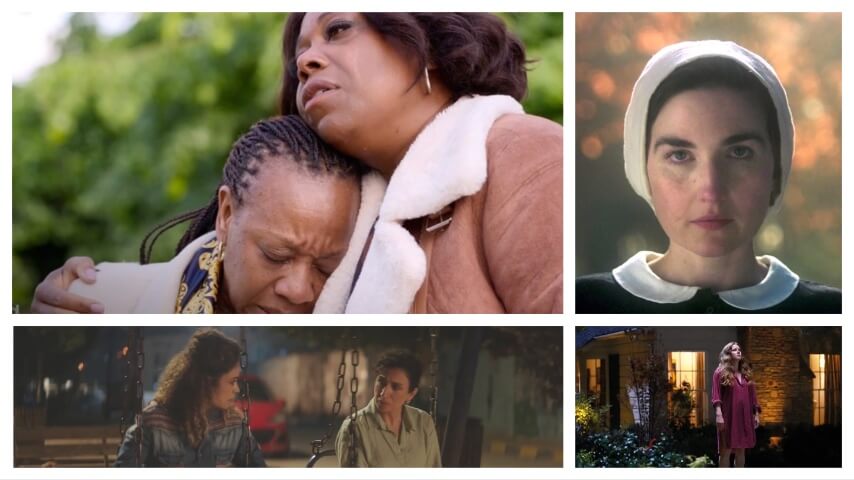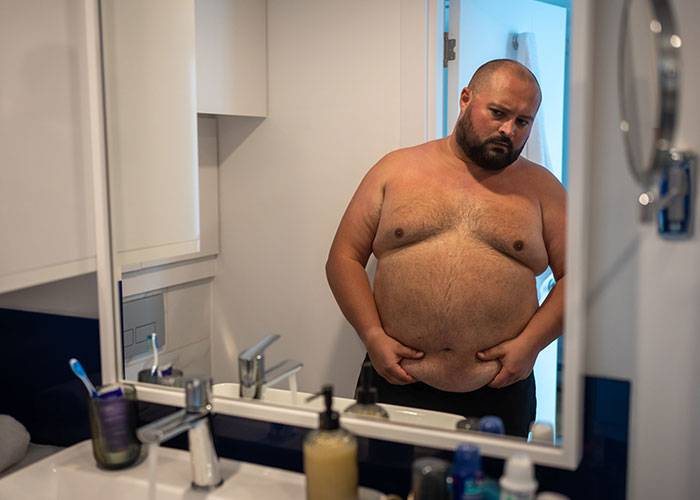In 2024, Pregnancy Horror Gave Way To Mothers Who Are Fed Up And Worn Out

As the U.S. prepares for another four years of Trump presidency, issues surrounding abortion access and the future of women’s bodily autonomy are at the forefront of everyone’s mind. Naturally, as these discussions reached a fever pitch outside of the studio lots, they also bled into the cinematic narratives of this year, where stories centering on pregnancy and the concept of motherhood dominated our screens.
Historically, horror has been the genre of choice for writers to explore the intricacies of pregnancy and the female body in great detail. The metaphorical links drawn between monstrosity and the female body were so prevalent that in 1993, film theorist Barbara Creed published The Monstrous-Feminine, where she argued that countless definitions of the monstrous can be attributed to the female reproductive body, identifying the womb as the primary site of violence. Her examples are hard to contest: in Alien, extraterrestrial lifeforms multiply through grotesque recreations of childbirth (planting eggs inside human bodies that hatch by bursting through the stomach); in Rosemary’s Baby, the title character’s body is used as a vessel through which to birth the Antichrist. Female characters who are impregnated against their will and forced to suffer the consequences have long dominated our screens, and this year, films like Alien: Romulus, Immaculate, and The First Omen have all depicted pregnancy as an invasion on the female body. But a notable development in this year’s crop of films is how the fear of pregnancy and motherhood is no longer relegated to the world of genre films—even the documentaries and dramas of this year have approached motherhood with a cynical eye.
As the rise of abortion restrictions and the deliberate withholding of miscarriage care leads to more frequent cases of maternal deaths, fear of the female reproductive system (from the male perspective) in cinema has evolved into an exhaustion with the entire concept of motherhood. The films of 2024 have overwhelmingly depicted motherhood as a burden. In Marielle Heller’s Nightbitch, Mother (Amy Adams) spends her days in a continuous cycle of cooking and cleaning while her husband travels for work. She makes the same breakfast for herself and her son every day before they visit the same park, followed by the same library. She fears that she has lost her former self in the monotony of motherhood, and even declares that the woman she used to be “died in childbirth.”
At no point in Nightbitch is Adams’ protagonist ever referred to by name or given an identity beyond the family home. She is merely Mother, a title that obscures her identity beneath the familial role, and then Nightbitch, an alter ego that only arises as a result of the extreme exhaustion that comes from being Mother. Motherhood becomes so wearisome that she begins to envision herself as a dog who crawls on all fours and howls at the moon, an exaggerated metaphor for the feeling of being caged by the trappings of motherhood. It is only after she sets boundaries within her family—briefly separating from her husband and demanding that he help take care of their baby—that she returns to her pre-motherhood job of being an artist. Standing in the middle of a gallery showcasing her artwork to a crowd of friends and former colleagues, Mother finally finds contentment once more. The suggestion here is blatant: As fulfilling as motherhood may be, it will keep you from achieving your dreams and wear you down in the process.
The exhaustion of parenting is similarly highlighted in Mike Leigh’s Hard Truths, where the burden of motherhood and years spent suffering from depression weigh so heavily on protagonist Pansy (Marianne Jean-Baptiste) that she spends most of the film’s 97 minutes scowling. Pansy is the mother of a reclusive teenage son (Tuwaine Barrett) and she is exhausted by a lifetime spent looking after her family. She navigates the world as though everyone is out to get her, her anxiety-induced rage a byproduct of the COVID lockdowns, years of repressed grief, and unaddressed mental health problems. After years of being a housewife, joy is a foreign concept to Pansy and her bitterness blankets every room she enters.
When Pansy declares that she is “sick to death of looking after people,” it feels like a moment of catharsis, but it is immediately punctured by an overflowing well of grief. Pansy releases all of the built-up resentment she’s harbored over her circumstances and shouts, “I’m a sick woman!”
The exclamation seems to come out of nowhere, but it is a sobering moment that finally acknowledges how her behavior and mental health has been shaped—and harmed—by her upbringing. When her father walked out on their family as a child, Pansy was left to care for herself and her sister as their mother struggled to recover from the abandonment. In her grief, Pansy’s mother grew distant, leaving Pansy to take on the role of mother at an extremely young age. As an adult, Pansy has been experiencing the burnout of motherhood for a long time, and she grieves her own life as much as she grieves for her now-dead mother. As she breaks down in tears over her mother’s grave, Hard Truths confronts us with the reality of how cycles of harm continue from generation to generation—the hardness that defined Pansy’s mother is passed down to her, and Pansy’s penchant for self-isolation is passed onto her son. In a world that is quick to cast aside the most vulnerable among us, motherhood is not seen as a valid reason for declining mental health. Pansy is left to deal with this realization alone.
The idea of motherhood as an encumbrance that threatens women’s sanity is taken a step further in the documentary Witches, where, through a mix of interviews and voiceover narration, director Elizabeth Sankey uses cinematic depictions of witches to explore pregnancy and postpartum psychosis. Sankey begins by addressing preconceived notions of motherhood, describing the ideal mother as someone who is selfless and “overflows with compassion, joy, and endless emotional resources.” She balks at the term “baby blues,” a dismissive phrase used to flatten perinatal mental health into something easily digestible for those unwilling to engage with the issue in any meaningful way. Instead, she offers up her own experience with postpartum psychosis as a means of exemplifying just how traumatic pregnancy can be. She recounts how she was admitted to a psychiatric hospital within a month of giving birth to her son and speaks openly about how much her mental health suffered during this time. In interviewing medical professionals, historians, and some of the women she met at the psychiatric facility, Sankey offers a safe space for the discussion of perinatal mental health without fear of being ostracized.
Social stigma around postpartum psychosis, expectations of how a new mother should behave, and medical racism are all suggested as reasons why suicide is a leading cause of death in new mothers in the U.K. To combat this, Sankey is upfront with her experiences. She looks directly into the camera and confesses to the dark thoughts that plagued her mind in the days following the birth of her son—when she was left alone, she would be tormented by the thought of killing her newborn baby or killing herself in order to prevent future harm. She would go days without sleeping or eating, all the while being told by male paramedics that this kind of exhaustion was typical of parenthood. The other mothers included in Witches speak of similar experiences, some more frightening than others. Their negative experiences are not sugarcoated, offering rare insight into the reality of postpartum psychosis.
Witches proposes that pregnancy has always been as much of a threat to women’s lives as anything else. Sankey spends the latter half of her documentary drawing links between modern diagnoses of postpartum psychosis and the testimonials made by women who pleaded guilty during the Salem witch trials. These testimonials describe visions of the Devil commanding women to kill themselves and their children—to modern ears, these confessions would be considered the first sign of postpartum psychosis. The suggestion that a percentage, no matter how small, of those executed during the Salem witch trials were mothers in extreme distress, who saw death as the only means of escape, is a heavy one, and it allows for Sankey to root her documentary in the historic belittling of women’s physical and mental health.
As Witches highlights, mothers who dare to admit that they are struggling are cast aside and treated as social pariahs. The well-being of the mother is not a primary concern in our society, as showcased in Nightbitch when Mother lambasts governments for providing very little financial or emotional support to mothers, or in Hard Truths when Pansy breaks down upon receiving flowers from her son for Mother’s Day, the first outward sign of his appreciation for her. Motherhood is made even more dangerous for women in active conflict zones. In the Palestinian comedy Thank You For Banking With Us, Maryam (Clara Khoury) is a mother of two who admits that she is tired of her life. When she encounters a group of young boys protesting in the streets of Ramallah, she scans the crowd for her son before leaving them with a single instruction: “Return to your mother alive.” It is a simple message that lays bare the unimaginable fear that must plague Palestinian mothers on a daily basis. Just as Pansy worries about her son’s ability to navigate a cruel world in Hard Truths, Maryam ponders what will become of her son in a land that seems to birth only martyrs or revolutionaries.
Whether discussing the status of women in the U.S., where female bodily autonomy is being stripped at lightning speed, or the U.K., where abortion is still technically a criminal offense and suicide rates among new mothers remain high, or even in Palestine, where mothers give birth not knowing how long their children will live, motherhood has never been a more terrifying prospect for women. In The Monstrous-Feminine, Creed writes that “all human societies have a conception [...] of what it is about woman that is shocking, terrifying, horrific, abject.” In 2024, that which makes women terrifying has been expanded beyond the initial horror of childbirth to include the exhaustion of life as a mother, as captured in the films of 2024 where the “joy” of motherhood was flipped on its head in favor of something much more realistic.
In these films, violence continues long after the initial act of childbirth. From the reality of a thankless existence as a mother in Nightbitch, to the confrontation of how poor mental health is exacerbated by motherhood in Hard Truths and Witches, the films of this year have emphasized the long-lasting hardships of motherhood and the exhaustion that comes with it. Exhaustion at the state, which forces women into motherhood and then offers little by way of support afterwards. Exhaustion at husbands who leave their wives to do the heavy lifting and still expect a meal on the table at the end of the day. Exhaustion at the very prospect of having to wake up every day and continue caring for everyone around you despite your own hardships, because that is simply what is expected of a mother. In a post-Roe v. Wade world where a woman’s right to choose is up for contention, pregnancy is no longer a terror that only plagues the fictional world of horror films, and these films function as both a warning and a guidebook for those who may be forced into motherhood against their will.


